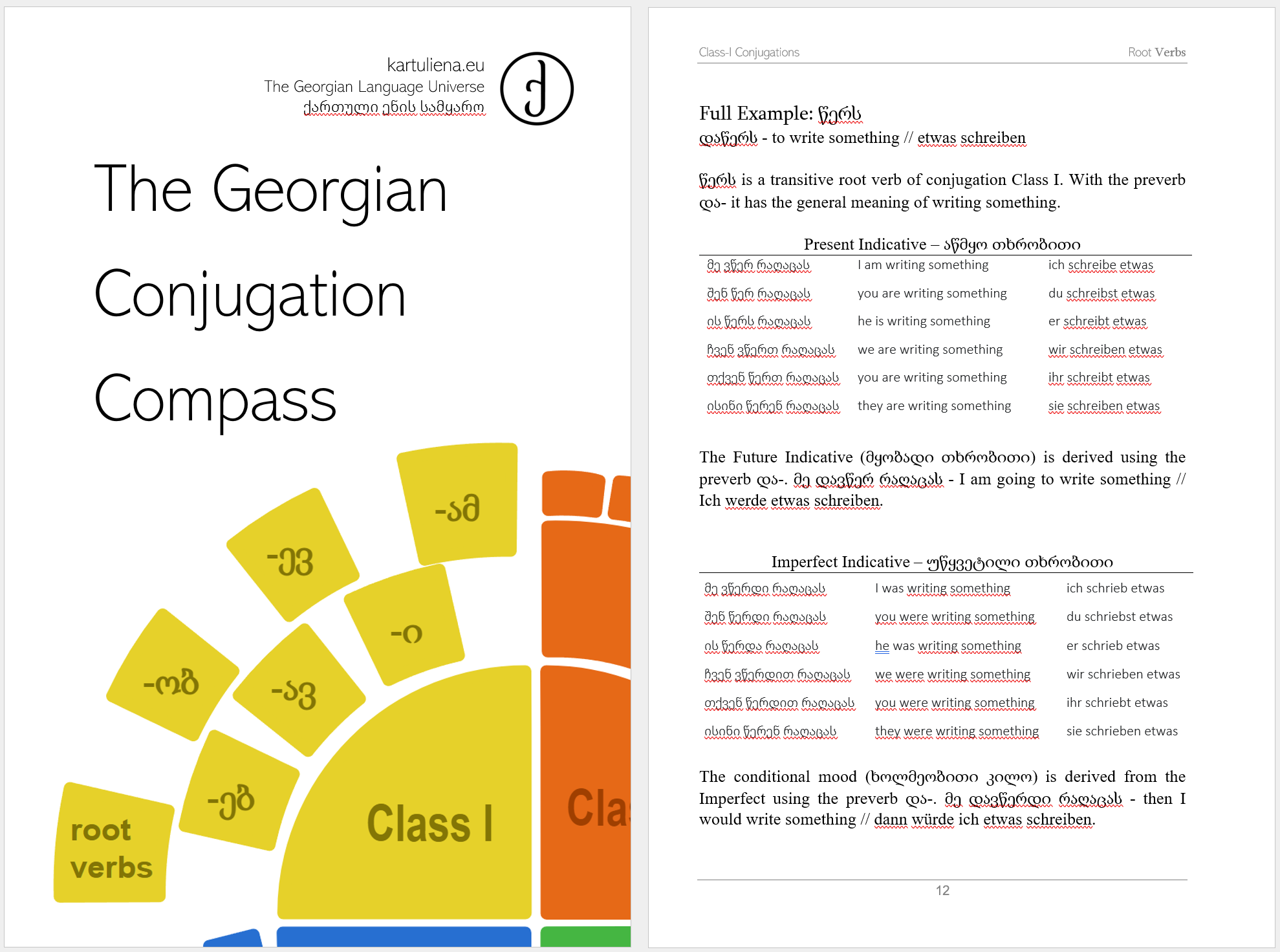Quick Links
Welcome to the mega diversity of the Georgian Verb Conjugations! For quick access to the Conjugation Classes or Groups just click on the fields in the color graphics below!
Introduction to the Georgian Verb Conjugations
After learning the basics of the Georgian verbs and how to use them, the foreign learner benefits a lot from getting an overview over the different conjugation classes and the most important conjugation tables within these classes. So far, I have identified 28 main conjugations, plus about 47 more or less rare exceptions plus the number of irregular verbs. This is comparable to French or German with each having 30-40 main conjugation schemes plus a number of exceptions and more or less strong variations of the main conjugations.

Conjugation Class I
Conjugation Class I includes all verbs for which is true: (1) in the present indicative the subject is in nominative and the object is in dative/accusative: ის წერს წერილს; and (2) in the aorist indicative the subject is in ergative and the object is in nominative: მან დაწერა წერილი. They can often be recognized by their suffixes -ი, -ობ, -ებ, -ავ etc. Read more ...
In some grammars the verbs in this class are called 'transitive verbs' (Tschenkeli 1958) even though not all of them are transitive - the medial verbs for example - or can be used intransitively, e.g. მე ვწერ - I am writing.
Conjugation Class II
Conjugation Class II includes all verbs which in present indicative as well as in aorist indicative have their subject in nominative: ის იჭრება - he is cutting himself (present) and ის დაიჭრა - he cut himself (simple past). These verbs often end on -ება, -ევა or -ია. Read more ...
Some Georgian grammars call these verbs 'passive verbs' or 'intransitive verbs' but there are many verbs in Class II which are neither passive nor intransitive, see Tschenkeli (1958: 254-256).
Conjugation Class III
Contrary to the other two classes, the verbs in Class III in present indicative (and other tenses as well) have their subject in dative and the object in nominative, much like in impersonal expressions: მას აქვს წიგნი - The book belongs to him. These verbs often end on -ს, -ება, -ევა or -ია. Read more ...
Some grammars call these verbs "inversive verbs" due to the characteristic of inverting the formation of subject and object in the present indicative.
Irregular Verbs
And as in every language, there are a number of verbs defying any classification and being pressed in an existing conjugation schema. Read more about them here ...
